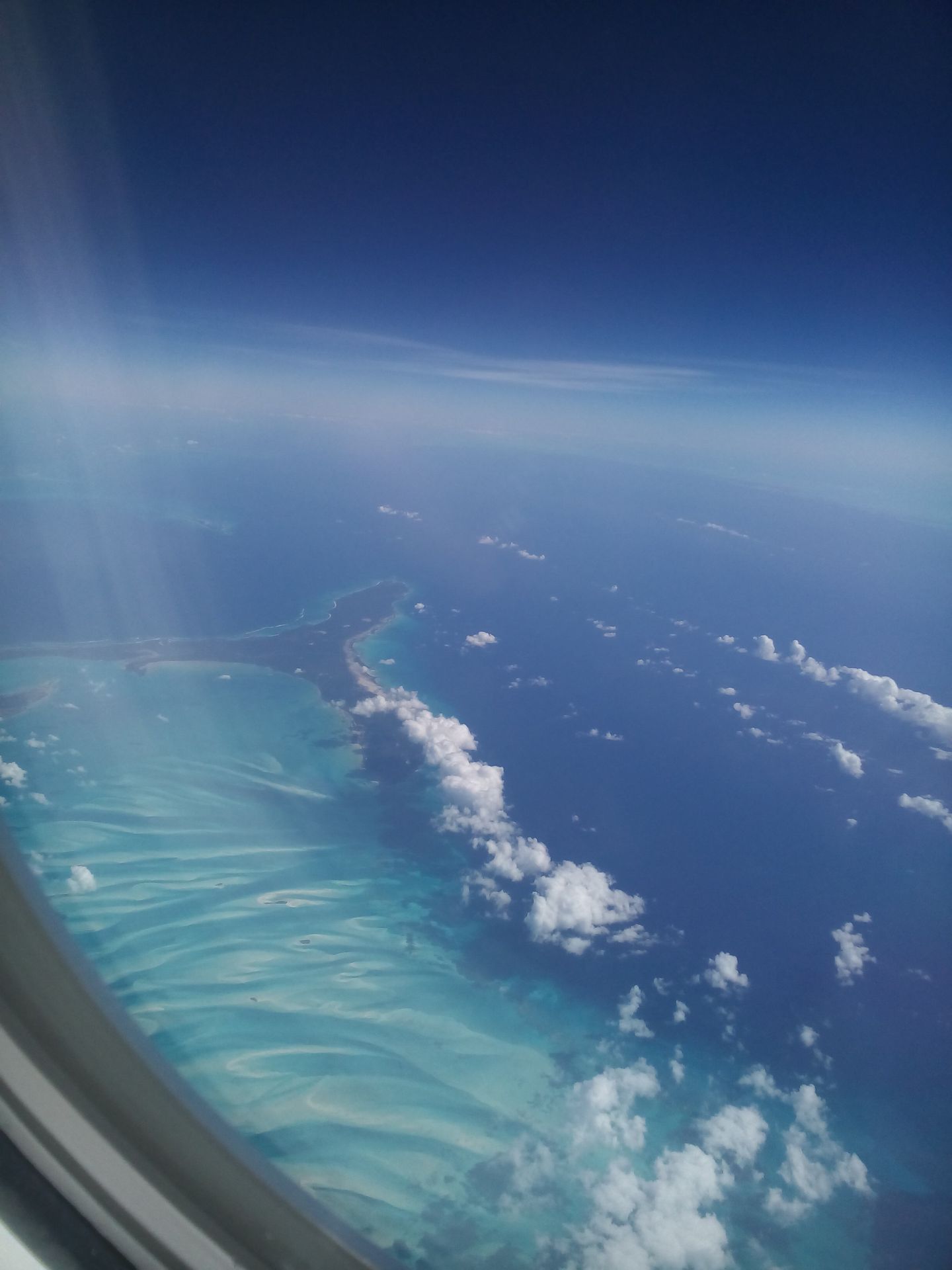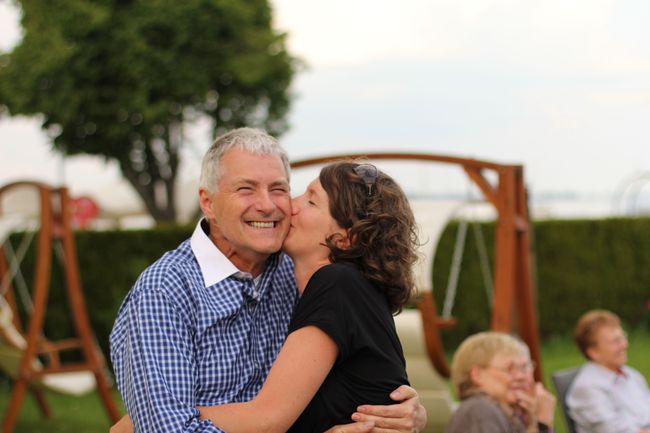The second week: Quite a lot of hay
Გამოქვეყნდა: 30.06.2019
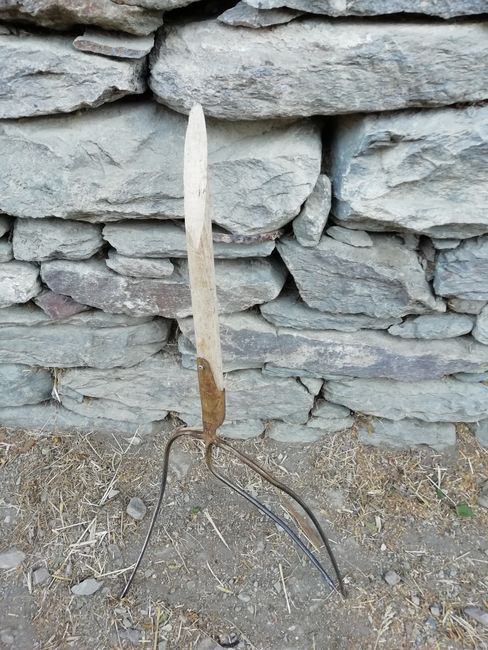
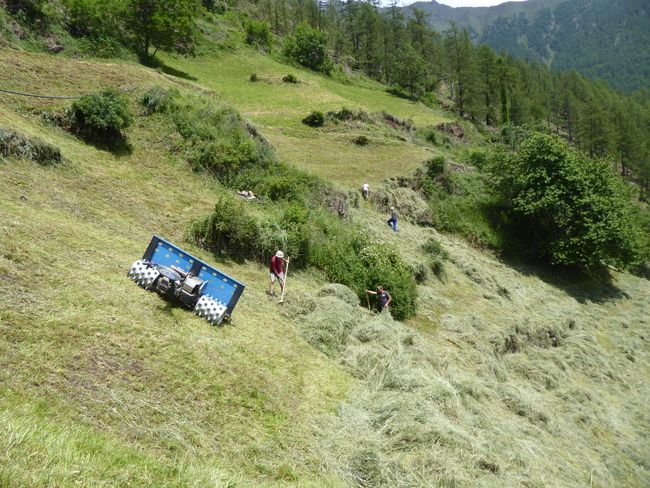
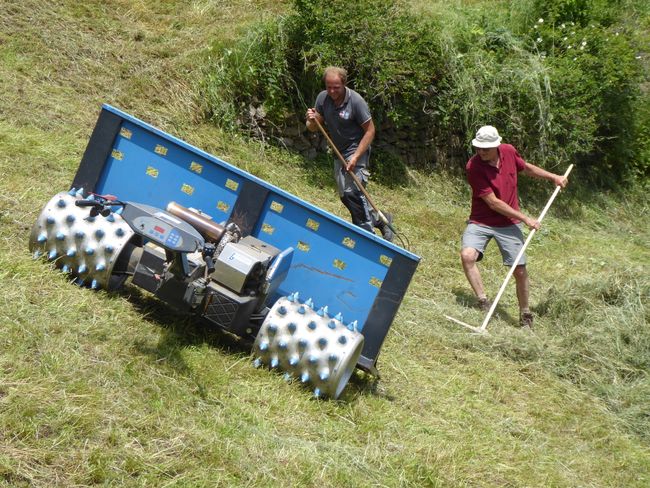
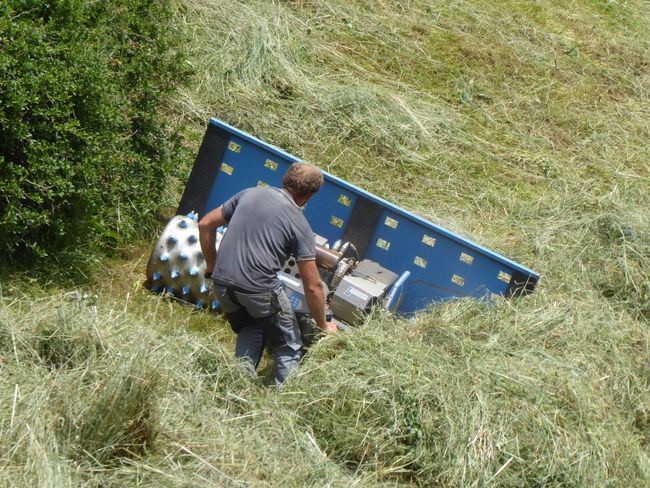
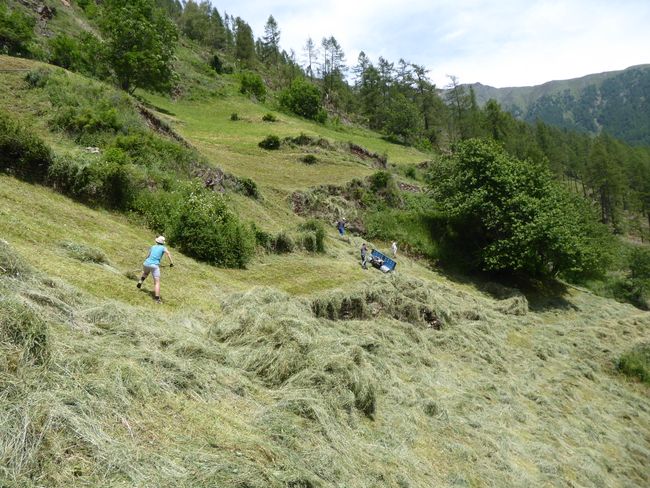
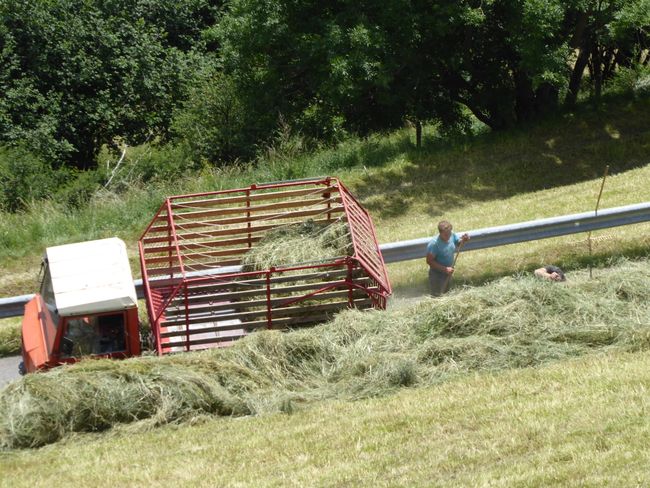
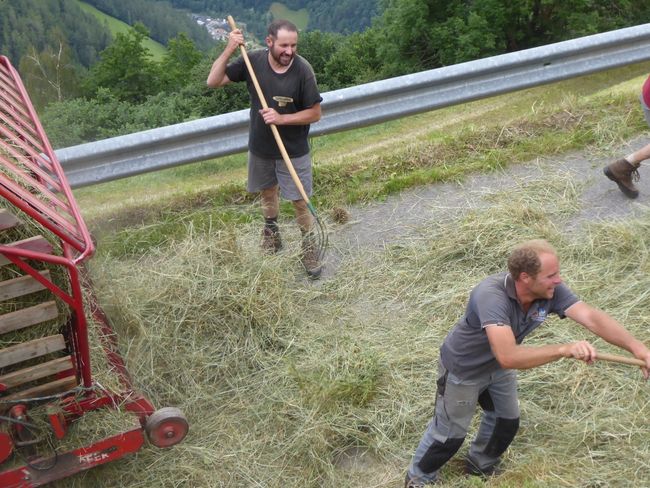
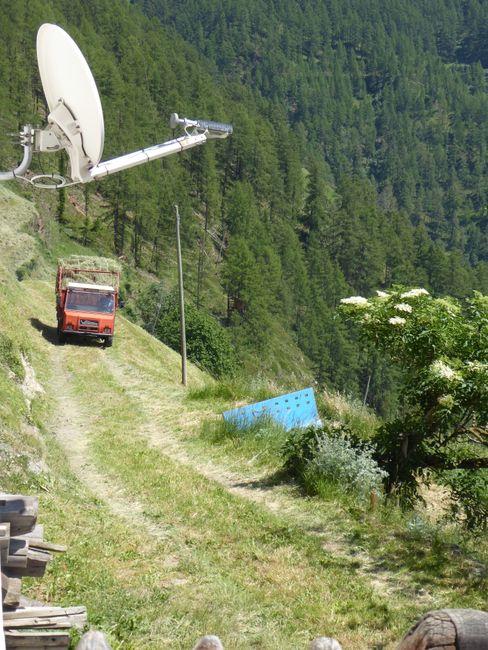
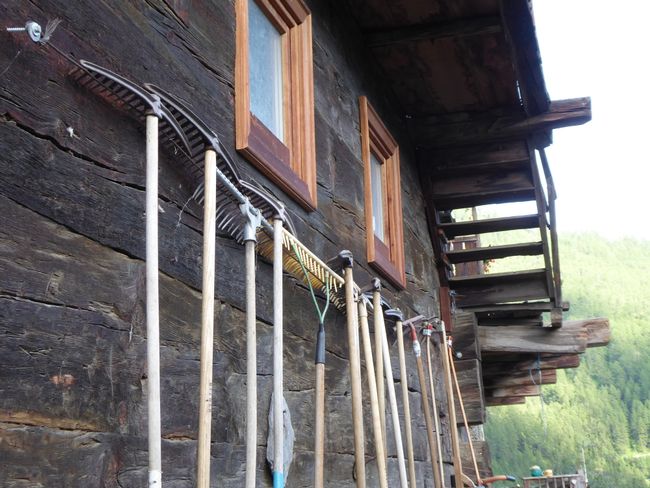
Გამოიწერეთ Newsletter
From mid-June onwards, it is a busy time for the mountain farmer. (Nonsense, actually the whole year is very busy. Even in winter, a work day often ends around 10pm with the stable work.) But the most exhausting time outside begins. That's why we volunteers were probably booked from mid-June. The grass was not tall enough in the first week, and it rained on Saturday. May was rather cool and wet up here. But now it's finally sunny and warm, and we can get started! It's buzzing outside in the meadows from 6am, and half asleep you know: Andi is already outside mowing or turning or cutting the edges. The part for us laymen usually starts in the afternoon when it's nice and hot and dry. (before that, we cleaned the stable, prepared feed, drove the cows up, cleaned the milking chamber...) Then armed with rakes and water, we go onto the steep slopes. Where it was mowed by hand, it must also be turned and brought down by hand. Around all the rocks and trees, on the very steep sections, in narrow passages. Otherwise, everything is rolled onto the next path with the hay roller, and there it is laid out by hand in such a way that it can be picked up as well as possible with the hay loader. Of course, you still have to help. Then the hay loader drives into the barn and unloads there. It has to be loaded into the first chamber with the crane. Where my mother had to jump around on the hay as a child to flatten it, the crane pushes it again. But it also has to be driven and the hay has to be constantly rearranged by hand so that it can pick it up well. Many steps! And I can't even imagine how it all worked without a mower and with a fork instead of a crane. After a week of hay work with other helpers from friends and family, but also with absences because everyone around us had caught the South Tyrolean stomach flu, the first barn is 3/4 full. The other one is still empty and nobody is talking about the second cut of the meadows, which are now being irrigated again. The warm summer is perfect for the harvest, but the hot sun is exhausting for all the harvest helpers. We drink copious amounts of water and juice (syrup with water), we are sweaty, and my arms and legs look like they have chickenpox and rubella combined in the evenings. But the next morning, the skin has calmed down again, and my initial hay fever has given up on its own. Shock therapy, so to speak! We work until the last load is in. It doesn't matter if you started at 6am or if you were in the stable at 4:30am or if it's already 9:30pm. Nobody here is complaining. It doesn't help anyway - it's the attitude. But more tiring than the heat or raking the hay is actually walking and standing on the steep slopes. Where there is still hay, us flatlanders slide like on soap, once I find somewhere to hold on, I rake in a circle around me or carve a path for myself. I wedge my old hiking shoes as best I can into the meadow, crawl on all fours with my rake into the steep corners, while Andi and Manuel float by lightly with their heavy mowing and turning machines! I didn't think it would be so exhausting, groans from the cold cellar of Mr. Altenhofen! But it doesn't help! There are still a few more steep hectares to go.
Გამოიწერეთ Newsletter
Უპასუხე
